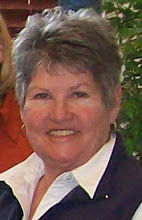This is an article taken from the Walker County messenger, April 26, 1912. It was written by Capt. J.Y. Wood:
"I write without records and make many mistakes. Late in the year 1836 my father Constantine Wood settled in West Armuchee Valley. At that time the forest, was occasionally broken by a crude log cabin. Deer, wild turkey, pheasants and almost every variety of birds and small game were abundant. The Cherokee Indians still roamed through the forest and procured a meager support for his family. It has been said there are two things an Indian could never learn: to fear death or to work. One thing, however, can be said of him. He was not destructive; with him the tribe was everything, the individual was nothing. The land and all living things belonged to the tribe. Hence, under their unwritten law, no one would kill more game than satisfied his present wants.
The county was organized 1832. The first mail route in the county ran from Chattanooga to Rome, Georgia. The first mail carrier was Ab Wisdom. He made the trip from Chattanooga and returned once a week. LaFayette was the first post office in the county. My father at that time took a newspaper which he read and loaned to his neighbors among whom it was circulated until it was worn out. Mail matter was 5 or 6 weeks old before it reached its destination.
In the early day there was a stage line from Augusta to Knoxville, Tennessee which carried the mail. About the year 1840 a mail route was established from LaFayette to New Town, a point in Gordon County on the road above named. This route was by Villanow, through a populous community, and though the mail was carried only once a month it was a great convenience.
Roads were rapidly opened and churches were organized in almost every neighborhood. Humphrey Posey, A missionary appointed by the Philadelphia Association to preach to the Cherokee Indians, organized Shiloh (1837 or38) and other Baptist churches in the county.
The first courthouse after the organization of the county was held in a little log cabin near Chickamauga at which two Indians, Pocketbook and Cash were tried for murder and both were convicted and hung. In 1838 the courthouse was finished and the first court in that building was presided over by Judge Hooper who resided in LaFayette at the time.
The old brick academy was also built about the same time and some of the first classes in the county were taught here. Spencer Marsh, John Caldwell, Samuel Farris and some others were prominent in managing the affairs of the county. Marsh was among the first merchant to open a mercantile business the new town. At that time dry good were bought in northern cities and shipped to Augusta. They were hauled in wagons from that place to almost all parts of the state.
The Indians were carried from the state in 1838. They were all collected in this section and guarded in a fort a short distance northwest of LaFayette where the Union Cotton Mills now stand. My father and mother had some warm friends among them and took their little family to bid them farewell. Those poor children of the forest were grief stricken at the thought of leaving their native hills. When the last handshaking took place all parties gave expression to their grief; many fell prostate on the ground and begged the soldiers to shoot them so they might be buried in the land of their birth. The line of march to the West was marked by their graves.
Sunday, February 17, 2013
Subscribe to:
Post Comments (Atom)

No comments:
Post a Comment